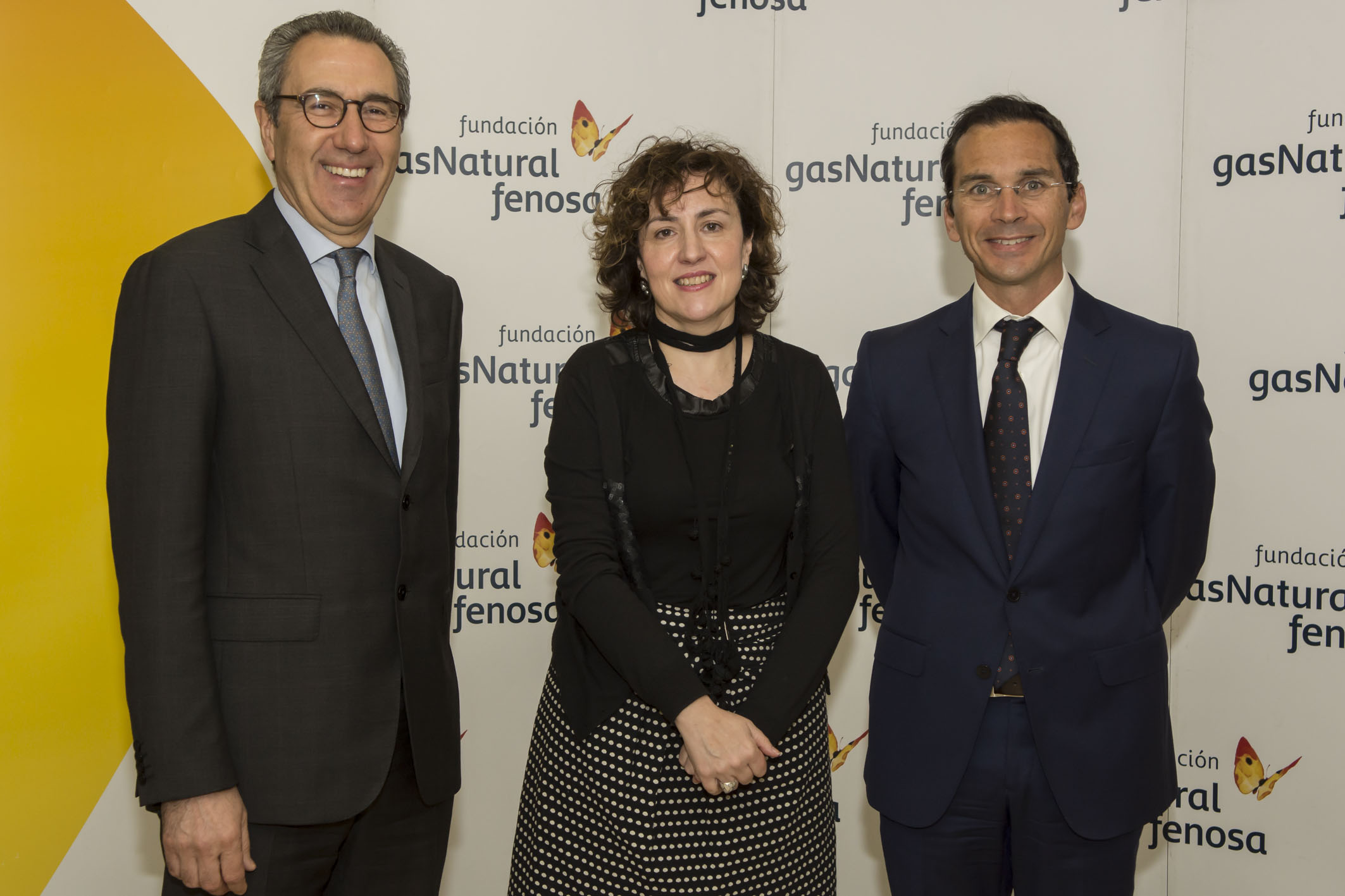Hybrid technology based on natural gas can reduce domestic energy consumption by up to 60%
At a seminar organised by the Gas Natural Fenosa Foundation in collaboration with the Regional Government of Valencia, various experts analysed the advantages of using natural gas to reduce energy consumption and environmentally harmful emissions.

In Valencia earlier today, the Director-General for Industry and Energy of the Regional Council of the Sustainable Economy, Productive Sectors, Trade and Employment of the Regional Government of Valencia, Júlia Company, the Managing Director of Gas Natural Cegas, Alfredo Ingelmo, and the Managing Director of the Gas Natural Fenosa Foundation, Martí Solà, officially opened the seminar entitled ‘Hybrid Solutions with Natural Gas and Air Quality’, at which the hybridisation alternatives between natural gas and other energy technologies in the residential sector and transportation were examined in order to find more environmentally-friendly solutions capable of improving air quality in our cities.
At the event, which was attended by over 100 professionals, a number of experts firstly identified the agents causing environmental pollution in urban areas, detailed the current situation of air quality in Spain and its impacts on human health, and explained the advantages of natural gas given its great capacity for hybridisation with solar thermal energy, electricity or other motor vehicle fuels.
The Consumer Motivation Manager from Saunier Duval, Domingo González, presented various principles for reducing energy consumption in buildings and later explained the concept of hybridising gas condensing boilers with electric heat pumps. Domingo González said that the residential and service sectors consume approximately 26% of final energy in Spain and that about 70% of final energy in these sectors is used for heating, hot water and refrigeration. He stressed that hybrid technology in the residential sector offers a chance to save up to 60% of the energy used in existing homes.
Air quality
The Scientific Secretary from the University Institute of Oncology and Lead Professor at the Department of Preventive Medicine of Oviedo University, Adonina Tardón, explained that the World Health Organisation believes that atmospheric pollution is one of the most important global health priorities and described the environmental pollution agents that have the greatest effects on human health.
The Deputy Director-General for Climate Change and Environmental Quality of the Regional Council of Agriculture, the Environment, Climate Change and Rural Development of the Regional Government of Valencia, José Vicente Miró, reported on the evolution and management of air quality in the Region of Valencia detected by the Atmospheric Pollution Surveillance and Control Network of Valencia, which comprises 64 fixed measurement points in three provinces.
José Vicente Miró explained the air quality improvement plans in Valencia and its metropolitan area, as well as the programmes aimed at improving air quality and meeting the air quality targets in the surrounding region and minimise or avoid the negative impacts of atmospheric pollution.
The Full Professor from the CMT – Heat Engines Institute of the Polytechnic University of Valencia, Jesús Benajes, explained that one of the most important sources of air pollution in large urban areas in the Region of Valencia are the emissions produced by motor vehicles. Jesús Benajes presented the technological challenges posed by diesel engines and the advantages of converting them to use natural gas – one of the most interesting fuels for transport because it can reduce environmentally harmful emissions and greenhouse gases alongside an important economic saving and the use of which is being actively encouraged by the European Union within the framework of its Horizon 2020 programmes.
Hybrid solutions: the combination of two or more technologies
The Mass Market and New Construction Manager of Gas Natural Distribución, Jesús Hernández, reported on the characteristics and applications of solar-natural gas hybrid technology in the residential sector and explained that the installation of condensing boilers in combination with domestic thermal solar systems (combined solar system) are the most profitable actions that can be undertaken in the energy system. Furthermore, he provided the practical example of solar-gas hybridisation for the heating systems used in an indoor swimming pool.
The New Developments Manager of Transports Metropolitans de Barcelona (TMB), Mario Canet, reported on the air quality commitment and improvement campaigns being implemented by the leading public transport operator in Barcelona by focusing on compressed natural gas buses, hybrid vehicles and compressed natural gas hybrid buses. To conclude, Mario Canet explained the characteristics of the Retrofit Project to convert a compressed natural gas bus to hybrid technology with a 30% reduction in consumption and emissions.
The event was closed by the Director General for Climate Change and Environmental Quality of the Regional Council of Agriculture, the Environment, Climate Change and Rural Development of the Regional Government of Valencia, Joan Piquer, and the Managing Director of the Gas Natural Fenosa Foundation, Martí Solà.
Gas Natural Fenosa Foundation
The Gas Natural Fenosa Foundation, founded in 1992, works to promote information and training and raise social awareness of improvements in energy efficiency and technological innovation in the field of energy while respecting and protecting the environment. It promotes cultural activities through its Gas Museum that are aimed at preserving and publicising the sector's historical and cultural heritage. It also has a programme to support exports for small and medium-sized enterprises. Its international activities are carried out in Algeria, Argentina, Brazil, Colombia, Costa Rica, Mexico, Morocco, Italy, Moldova and South Africa.
Valencia, 19 April 2016
Share